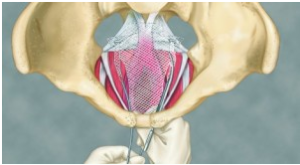Pelvic organ prolapse is one of many pelvic floor disorders we are able to treat here at Revitalize Physical Therapy. Never heard of it? I’m not surprised! It doesn’t get the coverage it should. Data on how many women are dealing with it also appears to vary. It affects approximately 3% of women in America, according to WebMD; however, the University of Chicago Medical Center says that as many as a third of women can have it by age 80. No small amount!
Pelvic organ prolapse is the medical term for what happens when organs, such as the bladder, small intestine, rectum, vagina or uterus, fall either into or out of the vaginal canal or the anus. This can happen due to issues, including pregnancy, delivery, pelvic organ cancers, and constipation. Any woman at any age can be affected potentially, but it’s most prevalent in midlife and among younger senior citizens.
Pelvic organ prolapse goes by different names, so you may hear your medical provider use a word like rectocele for a prolapse of the rectum, or cyctocele, when the bladder moves into the vagina. (Cyctocele is in fact the most common form of pelvic organ prolapse.) Pelvic organ prolapse can result in urinary frequency, incomplete emptying of the rectum, or painful sex, to name a few.
So now that you’ve heard about pelvic organ prolapse, your next question might be: How can I avoid it? Fair enough! Some risk factors can be averted and others can’t. You can’t help things like, say, a history of this in your family or having had a baby, but you can make sure you are eating sufficient fiber (25-30 grams/day), and drinking enough water (8 cups/day) to try to avoid constipation. Furthermore, both urination and defecation should be completely passive processes. No straining is required, and if you must strain or push excessively to pass bowel movements, speak to your friendly neighborhood pelvic floor PT! Finally, don’t start smoking or give it up if you are already in the habit (which is a good idea anyway).
If you suspect that you have pelvic organ prolapse, the issue may be diagnosed by an ultrasound of your pelvis or other tests involving the bladder or urination. Physical therapy, a pessary and, when all else fails, surgery are used to treat pelvic organ prolapse. (It is worth noting, though, that surgery has a high chance of not working.)
Happily, science may be coming along to help further: Researchers at UT Southwestern Medical Center have found a potentially noninvasive way to screen for pelvic organ prolapse. They have discovered a vaginal swab test that may identify women who are prone to developing pelvic organ prolapse. The study appears in a medical journal called Aging Medicine. This test found that certain proteins were higher in the vaginal secretions of postmenopausal women who were diagnosed with pelvic organ prolapse.
If we know which women are likely to have pelvic organ prolapse, a doctor or pelvic floor therapist can initiate a preventative plan rather than one that treats them when they already are showing symptoms. When it comes to prophylactic treatment, I like to say that an ounce of prevention is worth more than a pound of cure!
The article doesn’t specify when the swab test will be available, but I hope it will come and soon. And you can rest assured that as soon as I have any more updates, I will keep you posted, dear readers. In closing, the sooner we know what’s going on with our pelvic floor health, the better.
RESOURCES/FURTHER READING:
https://www.utsouthwestern.edu/newsroom/articles/year-2023/july-pelvic-floor-disorders.html
https://www.webmd.com/women/pelvic-organ-prolapse
https://www.ncbi.nlm.nih.gov/pmc/articles/PMC4166938/
https://www.uchicagomedicine.org/conditions-services/obgyn/urogynecology/pelvic-organ-prolapse




